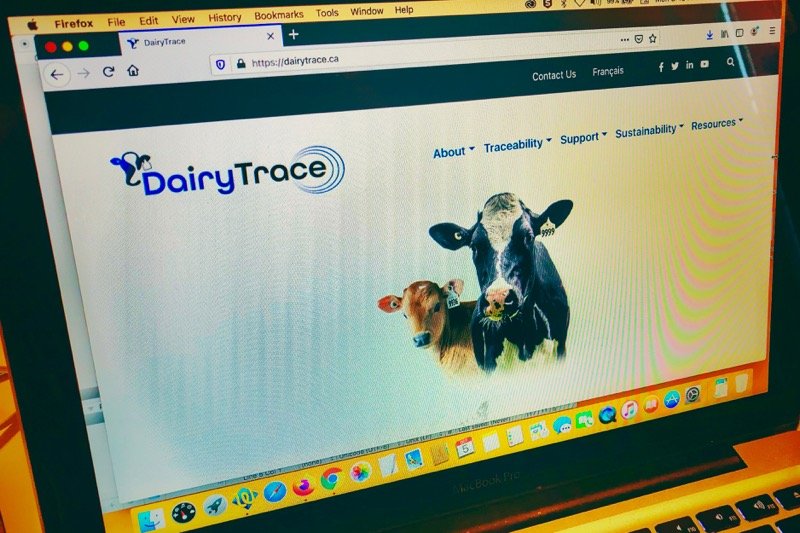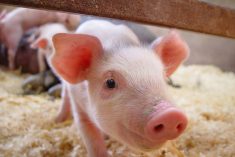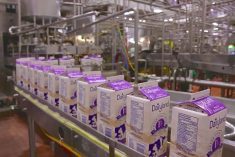Lactanet Canada’s centralized national system for management of dairy cattle traceability data has formally been plugged in.
Guelph-based dairy herd management service provider Lactanet on Monday launched DairyTrace, which it says will operate alongside the traceability module of Dairy Farmers of Canada’s proAction initiative in providing “state-of-the-art traceback capabilities in the event of an emergency or animal health crisis.”
Recognized in June by the Canadian Food Inspection Agency as the national administrator responsible for traceability of dairy bovine animals under federal Health of Animals Regulations, Lactanet has been working with DFC toward a national traceability system since 2016.
Read Also

Trump tariff on Brazilian goods could jack up U.S. burger price
U.S. President Donald Trump’s plan for a 50 per cent tariff on goods from Brazil will likely raise prices for the beef that is used in American hamburgers, traders and analysts said on Thursday, as food manufacturers increasingly rely on imports during a time of declining domestic production.
Federal regulations and DFC’s proAction requirements call for anyone who owns or has possession, care or control of dairy cattle to record and report animal identity, movement, location and custodianship information.
To that end, the DairyTrace system will include a mobile app and online database portal, which Lactanet said will “streamline and simplify” recording and reporting of animal identification and movement, plus a national website with information for dairy producers and handlers as well as consumers.
The program will also offer customer service support, animal tags and instructional materials, Lactanet said.
Exchange systems will also be available for “non-producer affiliates” outside Quebec such as abattoirs, assembly yards and auction facilities, allowing them to use either the DairyTrace system or the Canadian Cattle Identification Agency’s (CCIA) Canadian Livestock Tracking System (CLTS).
“DairyTrace has been developed to provide dairy farmers with easy-to-use tools for managing their traceability obligations,” Stettler, Alta.-area dairy farmer Gert Schrijver, the chair of Lactanet’s DairyTrace advisory committee, said in Monday’s release.
DairyTrace will be managed by Lactanet’s board of directors with “input and collaboration” from DFC, working within existing structures and systems in the dairy sector, DFC said in June when it announced the system would be ready in the fall.
All dairy farmers will have “access to a one-stop-shop” for ordering tags and receiving customer support from DairyTrace customer services, as well as the National Livestock Identification for Dairy (NLID) program offered through Holstein Canada, Schrijver said.
Dairy producers outside Quebec will still buy dairy bovine tags through NLID, which will now be “dovetailed” alongside DairyTrace customer services and both offered via Holstein Canada, DFC said.
The system will also offer customer support via Agri-Tracabilite Quebec (ATQ), through which Quebec producers “have successfully practiced this traceability model for many years using the SimpliTrace system,” DFC said.
ATQ will host, support and transfer data to the DairyTrace system, DFC said, but will also continue to provide its “well-established” services to Quebec producers by way of SimpliTrace.
The DairyTrace system “will also promote information-sharing and potentially add value to research and genetics initiatives,” Lactanet said Monday.
Schrijver in June had hailed the system’s pending launch as “a pivotal milestone for dairy producers, as it will provide the data management infrastructure needed to provide — for the first time — a true, pan-Canadian picture of the movements of dairy cattle.” — Glacier FarmMedia Network

















